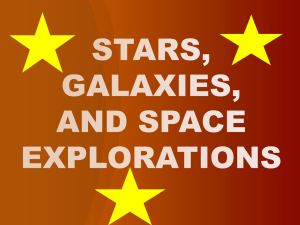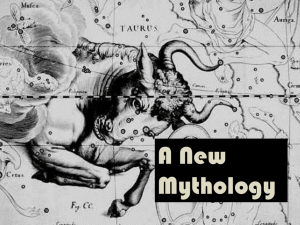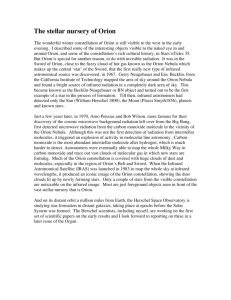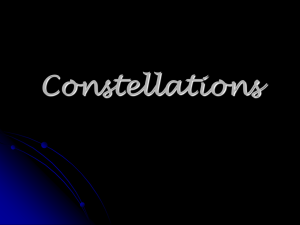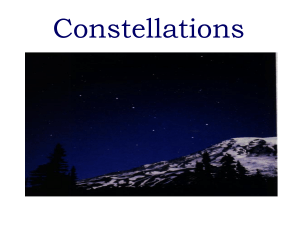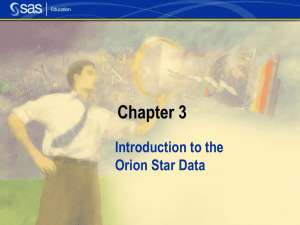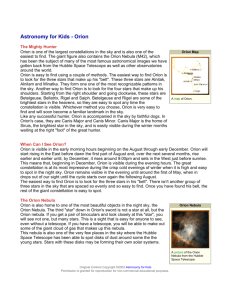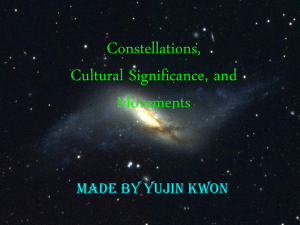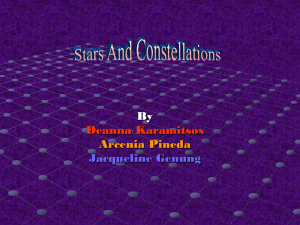ORION the Hunter
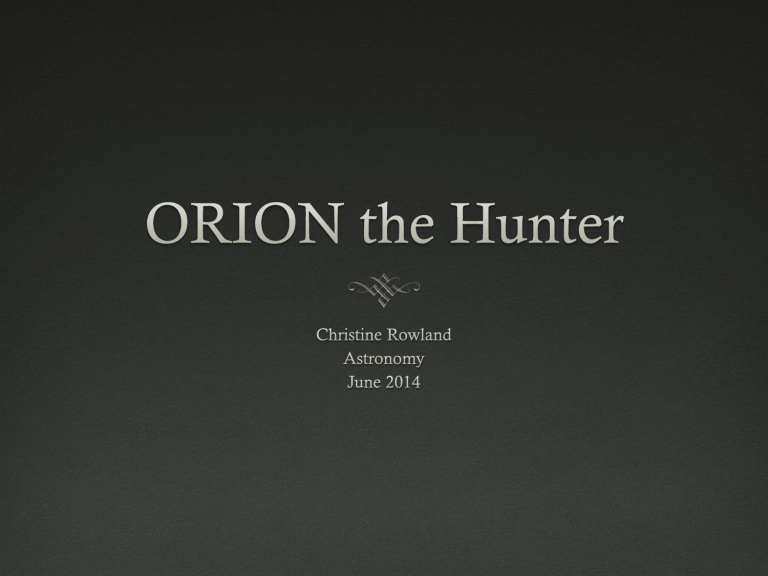
Orion the Hunter
Mythological Story
Orion was a famous hunter and in one of the Roman myths he boasted that no creature could kill him. Hera the wife of Zeus sent a scorpion to sting the hunter. Orion smashed the creature with his club, but not before he was poisoned. Both of the constellations are now on opposite sides of the sky and can’t be seen at the same time.
Orion
Orion is one of the most beautiful winter constellations, and one of the easiest to find in the sky .
The easiest way to find Orion is to look for the three stars that make up his “belt”.
These stars are Alnitak , Alnilam and Minatka, and they are the most prominent stars in the Orion
Constellation.
The Stars of Orion
Betelgeuse is the second brightest star in Orion and marks his right shoulder.
It is a red giant and you can see the difference in color.
Bellatrix serves as Orion’s left shoulder.
Saiph marks his right knee.
Rigel is Orion’s left knee and one of the rarest in our galaxy, a large blue star.
Sirius the brightest star in the night can be seen below & to the left of Orion.
Orion Nebula
Orion is home to one of the most beautiful objects in the night sky, the
Orion Nebula . This is the middle “star” in Orion’s sword.
Orion Nebula is a formation of dust, hydrogen, helium and other ionized gases rather than a “star”.
Most nebulae are clouds of interstellar gas and dust and are difficult to see with the unaided eye or even binoculars. But the Orion Nebula is in a class nearly all by itself, it is visible to the unaided eye on a dark, moonless night.
If you looked at this “star” with binoculars you would see not one star but many stars and if you looked at this “star” with a telescope you would be able to make out some of the giant clouds of gas that makes up this Nebula.
Orion Nebula
Orion in the Sky
Orion is visible in the early morning hours starting in late August through early
January.
Orion will start rising in the east before dawn in the later part of August and over the next few months rise earlier and earlier.
Then in December it will rise around 9:00pm and set in the west just before sunrise. Therefore the best time to see Orion is during the winter evening hours usually in December.
As you know, Orion can’t be viewed when the Sun is shining because the Sun light is so strong it washes out the light from the stars and planets. On a clear day, you can see the Sun and sometimes the Moon, even though the stars are still there.
Constellation
Goals and Objectives
To understand what a star is made of
To understand what a constellation is
To understand and identify different constellations such as
Orion the Hunter
To work as a Team and design a constellation
To understand the rotation of the Earth and constellations in the
Night Sky
Constellation Stories
Draw the stars on your white board and as I share the story Constellations, I have the students connect the dots to outline the picture in the constellation.
Ask the students to make predictions, to find similarities/connections between stories, to share why they think the story turned out as it did.
Image of Orion
What are Stars Made of ?
What are Constellations?
Different Season Constellation
The Earth’s Rotation
The Earth Revolves around the Sun
Orion in the Night Sky
Orion the Hunter
Citations
Weasner, Michael. The Marvelous Stars of the Winter Hunter. 2001. Photograph. The
SubmitterWeb. 7 Jun 2014. <http://www.arksky.org/ref_guides/orion1.html>.
How Far are the Constellations. 2007. Photograph. Starry Night TimesWeb. 7 Jun 2014.
<http://www.starrynighteducation.com/sntimes/2007/02/index.shtml>.
Laaifat, Mohammad. How to Locate Orion Nebula. 2014. Photograph. Earth SkyWeb. 9 Jun
2014.
Leon, Nancy. Make a Star Finder. 2013. Photograph. NASAWeb. 10 Jun 2014.
<http://spaceplace.nasa.gov/starfinder/en/>.
Orion Nebula. 2014. Photograph. WilkepediaWeb. 10 Jun 2014.
<http://en.wikipedia.org/wiki/Orion_Nebula>.
Thompson, CE. Glow in the Dark Constellations. 2014. Photog raph. AmazonWeb. 11 Jun
2014.
